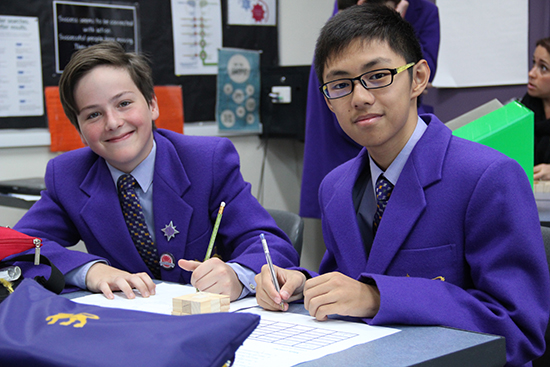
With the introduction of the new Australian Curriculum and the International Baccalaureate Middle Years’ Programme the focus at Wesley College on what, why and how students learn has continued to intensify. Increasingly, we have come to see our teaching and learning programs (from the early childhood years and all the way to Year 12) as a continuum of learning that is best served by a culture of practice characterised by consistency and coherence.
Equally, and knowing what we know of the critical importance of how teachers teach to the effectiveness of this continuum of learning, we continue to reshape and refine the infrastructure of support we provide for ongoing teacher professional learning. At every level, across our continuum, the focus of teacher professional learning is a considered response to the questions, 'What do my students need?' and 'What do I need to know and be able to do with them?'
Invariably, the answers to these questions relate to the development among students the skills of self-management, communication, collaboration, research and thinking. These skills, fundamental to the process of learning, are no more important to Year 12 students than they are to learners in the early childhood years. Guy Claxton reminds us that “Learning is learnable and we ought to teach it.” What teachers need to know and be able to do to foster these skills for learning are, now more than ever before, at the heart of our teacher professional learning practice. A key priority for Wesley College this year is our implementation of The Approaches to Teaching and Approaches to Learning frameworks that are available for our use as an International Baccalaureate World School.
On the first day of Term 2, teachers across the College engaged with Lance King, who enjoys world-wide recognition as an expert in the art of learning – his website is definitely worth reviewing for the information, ideas and resources it makes available to students, teachers and parents alike. Fully aware of the productive partnerships essential to the learning process, the College also provided an opportunity for parents across the College to interact with Lance King via a parents’ seminar on 14 April. We were delighted to receive very positive reflections of the seminar from those parents who were able to attend. Those unable to attend now have access to his work via the web link provided above.
Central also to learning is the practice of assessment – how do we know, for all the skills of learning with which equip our students, that the learning we intended has actually taken place? This question is, or should be, of vital importance to teachers in regard to individual students and to the entire class group they teach. The primary purpose of assessment in this context is to gather the data that is essential to effective teaching. This kind of assessment is more concerned with supporting the successful learning of students (individuals, groups, classes) and less with locating deficit for its own sake. At its best, this practice of assessment manifests in a culture of shared routines, strategies, processes, language and atmosphere of learning within which teachers and students alike regularly elicit and receive feedback necessary for improvement of their own practice. Within this culture, the practice of teaching and learning is made responsive to the individual needs of each student as a matter of course. This is a culture to which we aspire as a College and to which end another educational expert of world renown, Dylan Williams, will be working with staff (teachers and leadership) on 28 – 29 May to embed formative assessment practice. Again, readers should find it rewarding to review the information, ideas and resources he makes available on his website.
